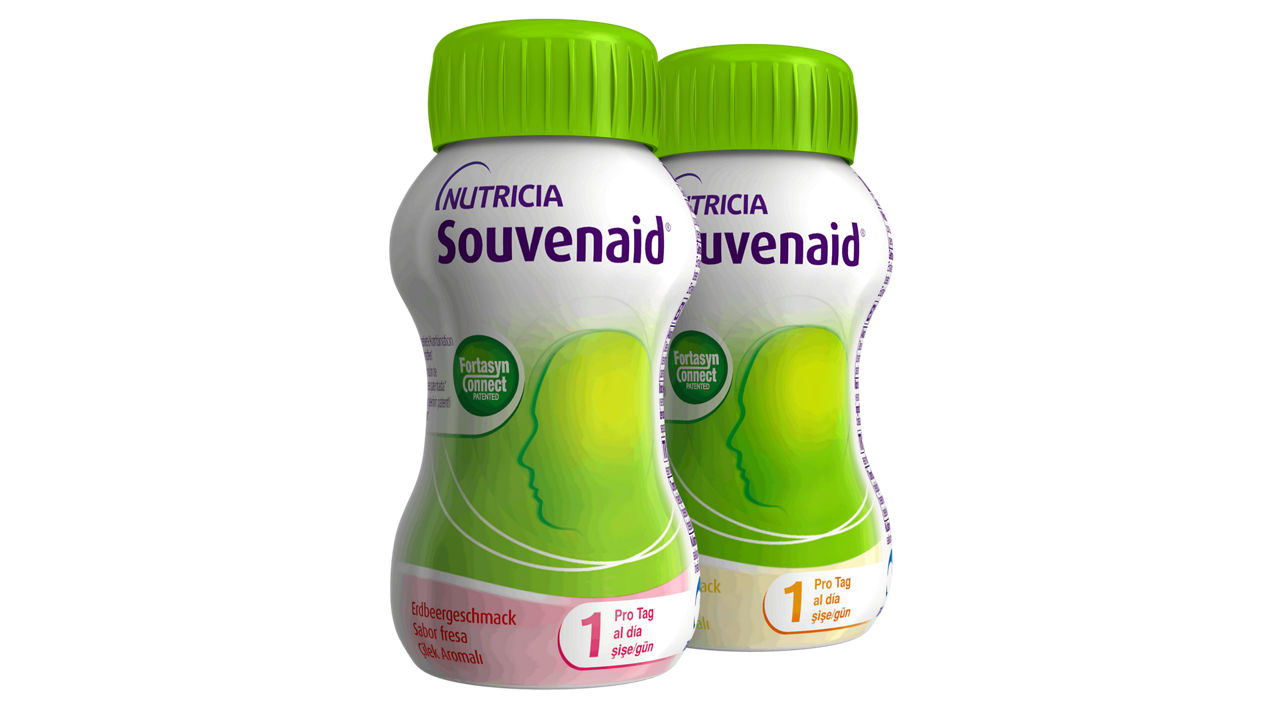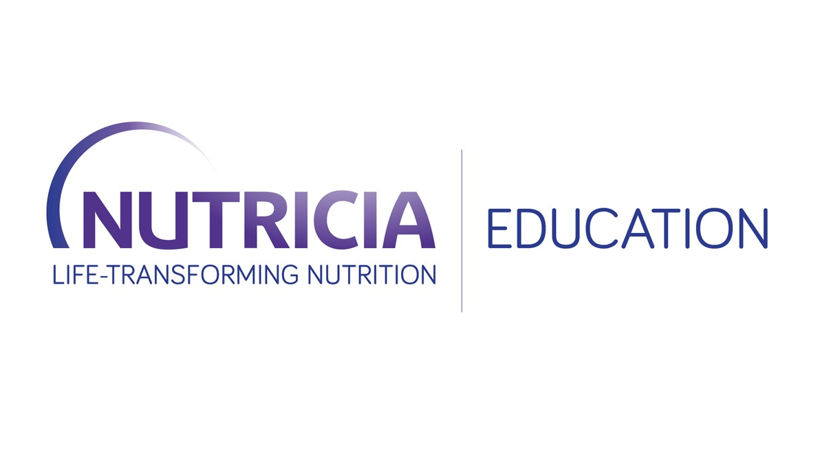Welcome to the healthcare professional pages of Early Alzheimer’s disease (AD). Here you’ll find a range of valuable information relating to the role of nutrition in healthy brain function as well as during the early stages of Alzheimer’s disease. You’ll also have access to new clinical data and evidence-based guidelines for the management of cognitive impairment and early AD.
Early Alzheimer’s Disease
About medical nutrition
Synapse loss is closely linked with memory loss, one of the first symptoms of Alzheimer’s disease[1-3]
Key nutrients vital for brain
The brain needs specific nutrients to build and maintain its structure4. Adequate availability of vitamins, minerals, amino acids and fatty acids in the brain is critical for many neural functions4, including formation and maintenance of neuronal membranes and synapses. Studies have shown that people with early Alzheimer's disease (AD) often have low levels of nutrients necessary for normal brain function, despite eating a normal diet5-9, which is correlated with a progressive loss of synapses and subsequent memory loss10-12. A large-scale, multicenter trial has recently shown that early initiation of medical nutrition containing a specific combination of key nutrients vital for brain function can have positive effects on cognition and function, memory and hippocampal volume in patients with early AD13,14.

Early Alzheimer’s Disease product
There are health challenges where medical nutrition can have an important role to play to support the patients with their specific nutritional needs. Souvenaid is a Food for Special Medical Purposes for the dietary management of early Alzheimer’s disease, including Mild Cognitive Impairment (MCI), and must be used under medical supervision.

Souvenaid
Souvenaid is a Food for Special Medical Purposes for the dietary management of early Alzheimer’s Disease, including MCI, and must be used under medical supervision
Recommendations
As the population ages, the challenge of effectively diagnosing and managing mild cognitive impairment, often an early sign of developing dementia, becomes all the more important. International panels of experts have convened to issue consensus opinions on the topic, including which patients may best benefit from a multimodal management approach that includes consideration of specific nutritional interventions.
Education

Continued learning enables us all to deliver the best possible care to those who need it most. Here we bring science-led educational resources as well as news from leading medical congresses, helping to stay up-to-date with the latest advances in medical nutrition.
Patient story

Aparacida and Lourdes’ story
Aparacida noticed changes in her mother’s behavior – she was starting to get forgetful, to repeat herself, even to lose interesting in sewing, which had been one of her favorite pastimes. A visit to a geriatrician showed Aparecida was right to be concerned: Lourdes was diagnosed with the early stages of Alzheimer’s disease.
Feature articles

LipiDiDiet trial, post-hoc analyses of the 3-year data published
Nutricia welcomes new publication in The Journal of Prevention of Alzheimer's Disease of post-hoc analyses of 3-year data from the LipiDiDiet trial, a multinutrient intervention in prodromal Alzheimer’s disease17.

FINGER trial
Is an individual’s risk of developing cognitive impairment and dementia set in stone? Are there steps we can all take to reduce that risk? The FINGER trial, a large-scale randomized controlled trial with older, at-risk individuals, pioneered the field and showed that nutrition and lifestyle changes can have significant beneficial effects on cognition.

Lancet Commission report on dementia prevention
In 2020 the Lancet Commission released their updates report on dementia prevention, intervention and care. The Commission’s reviews and meta-analyses were incorporated into a new 12-risk-factor life-course model of dementia prevention. Modifiable risk factors for dementia include smoking, obesity, hearing impairment and low social contact, and account for around 40% of worldwide dementias.
Since the Lancet Commission report did not treat nutrition in depth, a separate report was published by an international panel of experts discussing the evidence and the shortcomings of nutritional trials so far.

The role of nutrition in the healthy brain
The brain relies on certain key nutrients to function at the best possible level and is adversely affected if these nutrients are not available. Read more on the Danone Nutricia Research website.

Nutritional needs in Alzheimer’s disease
Patients with early stage Alzheimer’s have been found to have lower levels of certain nutrients that are key to brain health. Read more on the Danone Nutricia Research website.
News
Nutricia welcomes publication of LipDiDiet clinical trial results of Souvenaid®
Global Coalition on Aging and Nutricia Call on Stakeholders to Leverage Nutition as an Essential Component of Healthy and Active Aging
- Scheff SW et al., Neurobiol Aging 2006;27:1372-84.
- Terry RD, et al. Ann Neurol 1991;30:572-80.
- Terry RD. J Geriatr Psychiatry Neurol 2006;19:125-8.
- Bourre. J Nutr Health Aging 2006a,b
- Lopes da Silva et al. Alzheimers Dement. 2013
- Lin et al. J Clin Psychiatr, 2012
- Loef et al. J Alzheimer Dis, 2011
- Olde Rikkert et al. ADPD 2013
- Trushina et al. PlosOne 2012
- Terry RD, et al. Ann Neurol. 1991;30:572-80
- Terry RD. J Geriatr Psychiatry Neurol 2006;19:125-8
- Scheff SW, et al. Neurobiol Aging 2006;27:1372-84
- Soininen H, et al. Lancet Neurol. 2017;16:965-75
- Soininen H, et al. Alzheimers Dement. 2021. 17:29-40
- Cummings, J., Passmore, P., McGuinness, B. et al. Souvenaid in the management of mild cognitive impairment: an expert consensus opinion. Alz Res Therapy 11, 73 (2019). https://doi.org/10.1186/s13195-019-0528-6
- Woodward, Michael et al. ‘Nationally Informed Recommendations on Approaching the Detection, Assessment, and Management of Mild Cognitive Impairment’. 1 Jan. 2022 : 803 – 809.
Are you a healthcare professional or (carer of) a diagnosed patient?
The product information for this area of specialization is intended for healthcare professionals or (carers of) diagnosed patients only, as these products are for use under healthcare professional supervision.
Please click ‘Yes’ if you are a healthcare professional or (carer of) a diagnosed patient, or ‘No’ to be taken to a full list of our products.
The information on this page is intended for healthcare professionals only.
If you aren't a healthcare professional, you can visit the page with general information, by clicking 'I'm not a healthcare professional' below.

